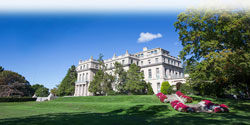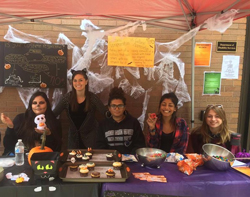In 2014 the University of California at Los Angeles (UCLA) released a study stating that colleges and universities across the nation are showing an increase in incoming students with no religious preference.
The report was published by UCLA’s Cooperative Institutional Research Program. The survey included results from a pool of over 150,000 full-time, and first-time students from over 200 colleges and universities around the nation. It showed that the number of freshmen from 2014 who selected “none” for religious preference increased to one in four, from one in six in 2005, according to pewresearch.org.
If similar studies were taken at the University such a trend might be apparent.
“My mom is Presbyterian, but I am not a religious person,” said Kristal Suriani, a junior graphic design major. “I think that some people need the hope that there is something past this life, but some people like myself just don’t. Yes, I hope that there are pearly gates at the end of life, but if there is not then there is no point sitting and praying and hoping that there is.”
Dr. Saliba Sarsar, a professor of Political Science wrote an Asbury Park Press article last year regarding the degradation of religion in America.
“Since the early 1950s, the United States has experienced a significant decline in religiosity, as expressed by a decrease in the importance of religion in people’s lives, lower attendance at religious services and fewer memberships in religious organizations, just to name a few.”
Dr. Eleanor Novek, a communication professor, has witnessed similar occurrences in her own place of worship.
“I am a Quaker, and on most Sundays we have a few small children, some people in their forties, and more older people for worship.
She went on to explain that “Missing from the benches are any young people in their teens and twenties. Members of our denomination and many other faiths make the same observation. In the past, the pews were full of all ages, but today, young people aren’t participating,” she said.
Muhammad Mathbor, the Chair of the Department of Philosophy, Religion and Interdisciplinary Studies believes that throughout his 17 years at the University he has seen a large majority student population of Catholics.
Then there is still a lack of participation in Catholic religious services. Sunday mass at the University’s Catholic Campus Ministry has a weekly average attendance of eight students.
Some students like Sandra Bertone, a junior animations major, do not believe in God, however, they assert that there is a higher power.
“I am agnostic. I believe in a divine power but it doesn’t really have a name,” she said.
Bertone discussed religion and science and how the two relate in her religion, “The belief system I have relies on science, and science says that energy cannot be created or destroyed, only transferred. So the energy around us can be used to make something else but it can’t go anywhere, it will always exists. So I believe in a power, but it is not God, or Jesus, or the Holy Spirit, but just a divine energy.”
Religious “nones,” have not only increased in young adults, but also in the nation’s adult population. According to a Pew Research report released last year persons who identify as atheists, agnostics, or “nothing in particular” compose nearly 23 percent of the U.S. population. Since 2007 the number of adults with no religious affiliation has increased by 7 percent.
Dr. Janice Stapley, an associate professor of psychology, concludes that many students in college are undergoing personal journeys of exploration.
“Adolescence is generally a time of using one’s increasing cognitive abilities, especially for abstract thinking and hypothetical thinking, to question all facets of identity, including one’s religion,” she said.
Novek shared a similar opinion.
“If students grew up in a religious household, it makes sense to me that they would question the belief systems they grew up with when they become young adults. As they gain independence, they are testing themselves and everything around them. And if they didn’t grow up with any faith, they may not feel any curiosity at this point because other things seem more important,” she said.
“I think that there is an increase of youth that are non-religious because this generation is a lot more open minded than most people my age were twenty years ago. You can see it when you look at things that are going on in the world and in the news. For example, look at the LGBTQ movement, the tolerance for differences elevated through time. We are opening our minds to different ideas about ourselves and the world,” said Suriani.



